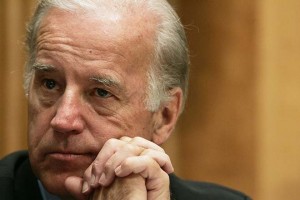
While Vice President Biden will discuss the economy during his Detroit visit, he's also expected to announce the first in what could be billions of dollars the government plans to invest in an advanced battery development infrastructure.
Vice President Joe Biden will be taking a trip to Detroit, on Wednesday, where he’s expected to not only address issues of the economy and the struggling U.S. auto industry, but also to announce the first federal grants aimed at spurring the development of the nation’s nascent advanced battery industry.
Earlier this year, President Barack Obama announced plans to invest $2.4 billion to promote both the development of battery technology and the facilities to produce them, here in the U.S. He noted that it was critical to stop ceding dominance in the field to other nations — notably Japan and China, which are considered furthest along in the development of lithium-ion technology.
Biden’s appearance at the quasi-private NextEnergy Center, a high-tech incubator, will come at an appropriate moment. After plunging to less than a quarter of last year’s peak, this past spring, oil prices have been steadily on the rise again, in recent weeks. On Tuesday, bidding pushed petroleum up about $70 a barrel, again. Though still barely half last year’s record, industry reports suggest the numbers could top $80 in the coming weeks.
That is already showing up at American pumps, where prices have risen significantly in the last two months, and have already topped $3.00 a gallon in some parts of the country.
The reason behind the oil price run-up is uncertain. Analysts point to several factors, including a slightly improved U.S. economy, the resurgence of manufacturing in China – and the same oil speculators many blame for last year’s soaring fuel costs.
The latest run-up could help motivate demand for more fuel-efficient automobiles, though as TheDetroitBureau.com recently reported, such shifts are largely temporary, “knee-jerk” moves, according to a report by Experian Automotive, with buyers quickly returning to the products they have long preferred, notably low-mileage pickups and SUVs.
Soaring fuel prices should also put a renewed spotlight on alternative energy and the vehicles that can use them. Just last weekend, Nissan revealed its new Leaf, a battery car it intends to put into production in 2010. In Detroit, all of the Big Three plan to begin using advanced batteries in products, such as the Chevrolet Volt, that they will launch over the next several years.
General Motors plans to produce battery packs for the Volt in Michigan, although it will utilize cells supplied by a South Korean partner. It is expected that the automaker will be one of those receiving a grant to help it set up its domestic battery operations.
For the moment, however, the White House is being mum about details. Ed DeSeve, a special advisor to the president on the stimulus package hinted to reporters, last month, that, “It makes sense to put those (investments) in places where there is productive working capacity — people who can do the jobs. There are plants where the jobs can exist, and I think you are going to start to see more and more of that over time.”
